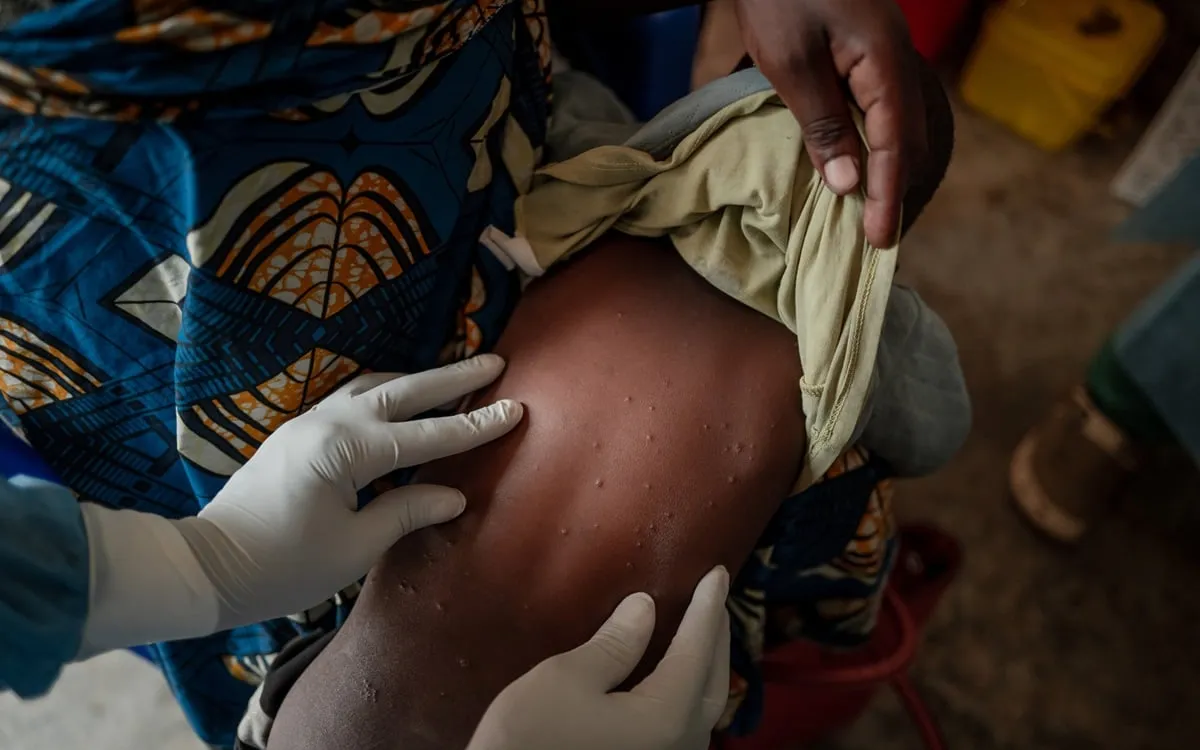
The Director-General of the World Health Organization (WHO) has announced updated measures following the third meeting of the International Health Regulations (2005) (IHR) Emergency Committee. This meeting, held on February 25, 2025, acknowledged the ongoing rise of mpox cases globally. The Director-General concurs with the Committee's assessment that the situation continues to qualify as a public health emergency of international concern. In response, a revised set of temporary recommendations is being issued to assist affected States Parties.
During this announcement, the WHO Director-General expressed sincere gratitude to the Chair, Members, and Advisors of the Committee for their dedication and insights. The proceedings from the third meeting will be shared with the IHR States Parties and published in due course, ensuring transparency and collaboration moving forward.
The temporary recommendations are targeted at States Parties experiencing monkeypox virus (MPXV) transmission, particularly in regions with sustained community transmission or clusters of travel-related cases of MPXV clade Ib. These recommendations are designed to complement existing guidelines for mpox, which have been extended until August 20, 2025. The WHO's Strategic Framework for Enhancing Prevention and Control of Mpox (2024-2027) underscores the importance of these standing recommendations for all States Parties.
States Parties are encouraged to access all current WHO interim technical guidance on the organization’s website. This evidence-based guidance will continue to evolve in response to new scientific data and risk assessments to better support the implementation of the Strategic Framework.
To enhance mpox prevention and response efforts, it is critical to:
Secure political commitment and allocate resources for reporting mpox cases, particularly in identified "hotspots." Establish or enhance national and local emergency coordination arrangements in line with the WHO's global strategic response plan. Foster partnerships among stakeholders involved in mpox response activities to ensure accountability. Implement a monitoring mechanism to evaluate the effectiveness of response measures at local levels. Strengthen coordination in humanitarian and conflict-affected areas to support vulnerable populations.Collaborative SurveillanceEffective mpox surveillance is crucial and should include:
Enhancing surveillance sensitivity and ensuring comprehensive geographic coverage. Expanding access to diagnostics and genomic sequencing to differentiate MPXV clades. Monitoring and supporting contacts of suspected mpox cases. Timely reporting of suspected, probable, and confirmed cases to WHO.Safe and Scalable Clinical CareTo provide adequate clinical care for mpox patients, States Parties should:
Offer clinical, nutritional, and psychosocial support, including isolation in care centers where applicable. Develop plans for optimized supportive clinical care for vulnerable populations, including children and those living with HIV. Enhance the capacity and skills of health workers in clinical care and infection prevention. Improve infection prevention and control measures in healthcare facilities.International Traffic ManagementStates Parties are encouraged to:
Establish cross-border collaboration for the management of suspected mpox cases. Provide necessary information to travelers without imposing undue travel restrictions.Vaccination StrategiesPreparing for vaccination is essential for combatting mpox, with a focus on:
Implementing targeted vaccination strategies in areas reporting cases. Engaging communities to build trust and demand for vaccination.Community Protection InitiativesStrengthening community engagement is vital, which includes:
Training local workforces on outbreak prevention and response. Addressing stigma and discrimination while promoting accurate information about mpox and vaccines.Governance and FinancingTo ensure effective response measures, it is essential to:
Mobilize national funding and seek external support for mpox initiatives. Integrate mpox measures into existing health programs for better health outcomes.Research and ReportingInvesting in research and addressing gaps in knowledge are crucial steps. States Parties should:
Conduct field studies to understand animal hosts and zoonotic spillover. Utilize genomic sequencing to inform control measures. Report quarterly to WHO on the progress of implementing these recommendations.As the situation evolves, these temporary recommendations serve as a vital framework for States Parties to effectively combat the ongoing mpox outbreak while upholding human rights and dignity.